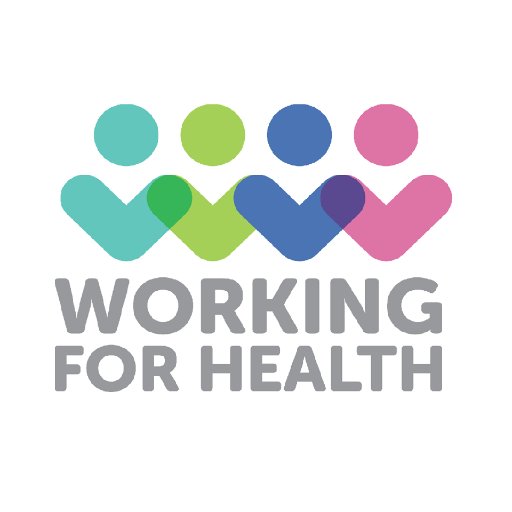
Arabella Skinner, Policy Director, Health Professionals for Safer Screens

Dr Becky Foljambe, NHS GP and founder of Health Professionals for Safer Screens
While the growing awareness of the harms of smartphones and social media, especially for teenagers, is welcome, there has been significantly less focus on the unequivocal damage that the ubiquitous use of screens is having on the youngest children. This article highlights the harms and implications for them and society.
The brains of babies and toddlers are susceptible to the external environment – they are designed to develop in response to the cues around them. Babies need face-to-face social interactions, free movement, play and using all their senses if they are to develop healthily. Digital devices do not offer this – there is no evidence to support the introduction of technology at an early age, and the increasingly extensive global research shows the immediate and long-term effects of frequent and prolonged screen exposure in this age group.
It is commonplace to see a baby with a smartphone attached to their pram or a toddler propped at a table with a screen and headphones – 27% of 3-4 year olds have their own smartphones. Under 2s spend an average of just over an hour a day on screens, and 2-4 year olds double that. When toddlers are used to high levels of sensory stimulation from screens, everything else appears dull or uninteresting in comparison. The child is, therefore, less motivated to explore their environment and seek interactions, missing meaningful learning and development opportunities.
Research has now shown that there is causal evidence that increased screen time negatively impacts a young child’s development. Children who watched more than 90 minutes of “daily direct screen time” were, at the ages of 4.5 years and eight, below average for vocabulary, communication, writing, numeracy, and letter fluency. They also had poorer social skills and higher levels of “peer problems.”
These were defined as being more likely to play alone, less liked by other children, less considerate and less likely to share their toys. Those who watched more screen time had even worse outcomes. Screens and tablets are often used to keep children calm as “digital dummies”, but while this may seem practical in the moment, it can hinder the development of children’s self-regulation skills in the long term. Studies have shown that the amount of screen time a child has at 3.5 years old can predict the increase in their anger and frustration at 4.5 years old. Furthermore, it may create a pattern where meltdowns become associated with screen time, as using screens can diminish self-control and result in more frequent outbursts.
The increase in ADHD and ASD symptoms, as well as atypical sensory processing, has, in part, been shown to be linked to the rise in screen usage in young children. The evidence suggests that excessive screen time may significantly contribute to the development of ADHD in children. Longitudinal studies have shown strong evidence that increased screen time is linked to reduced language skills and developmental delays. Speech and Language referrals have hit an all-time high, with 1.9 million children diagnosed with speech and language challenges in 2023, and 25% of speech and language therapist posts currently unfilled. A child with speech and language challenges is more at risk of emotional and behavioural disorders, mental health issues, and worse literacy and numeracy. At least 60%of young offenders have language challenges.
This has serious consequences for our children’s development. The Kindred Squared School Readiness survey has teachers reporting that a third of children are just not school ready.
In an average Reception classroom:
📌 45% of children cannot sit still
📌 34% don’t respond to simple instructions
📌 36% struggle to play or share with peers
📌 25% are not toilet-trained
And the problem is getting worse. Nearly half (49%) of teachers say school readiness has declined since last year.
The report explores multiple causes, but screen time is a significant factor. Teachers and parents are deeply concerned:
📱 54% of teachers say parents spend more time on screens than engaging with their children.
📱 54% of teachers believe children exceed the recommended two hours of screen time daily.
📚 52% say parents aren’t reading enough to their children.
There is more than enough evidence to act – and many of the actions we need to take for our youngest are free and easy for us to implement as a society.
- Create clear screen time guidance for Early Years. Health Professionals for Safer Screens recommends no screens before 2 and no more than 30 minutes between 2-5 years old a day.
- Make parents aware of the harms of screens by giving them clear guidance through a public health campaign.
- Support parents and carers with opportunities for their children to play and help them understand the value of play as a developmental driver.
- Communicate the value of shared activities – for example shared reading is proven to support language development especially in lower SES children.
- Remove screens from nurseries and early years.
The damage that screen usage is doing to our youngest children, and the lack of guidance from the government in this area (or often encouragement to have more screens) has serious consequences for the individual child – impacting their ability to learn, build relationships and pay attention – all vital for child development. It also has huge implications for society with the associated costs – speech and language therapy, increased EHCPs, increased diagnosis of ADHD, ASD and atypical neurodevelopmental as well as the waste of human talent. If the Government is serious about their stated mission to “break down barriers to opportunity with a milestone of giving children the best start in life” then they have to recognise that it is unachievable unless they address the issue of screens. A failure to do so will mean a huge waste of energy and money, but more importantly, an enormous dereliction of duty as the outcomes are undeniable.
For more details on the research mentioned above visit here or scan here . And for a short film with experts discussing the harms please visit here.



